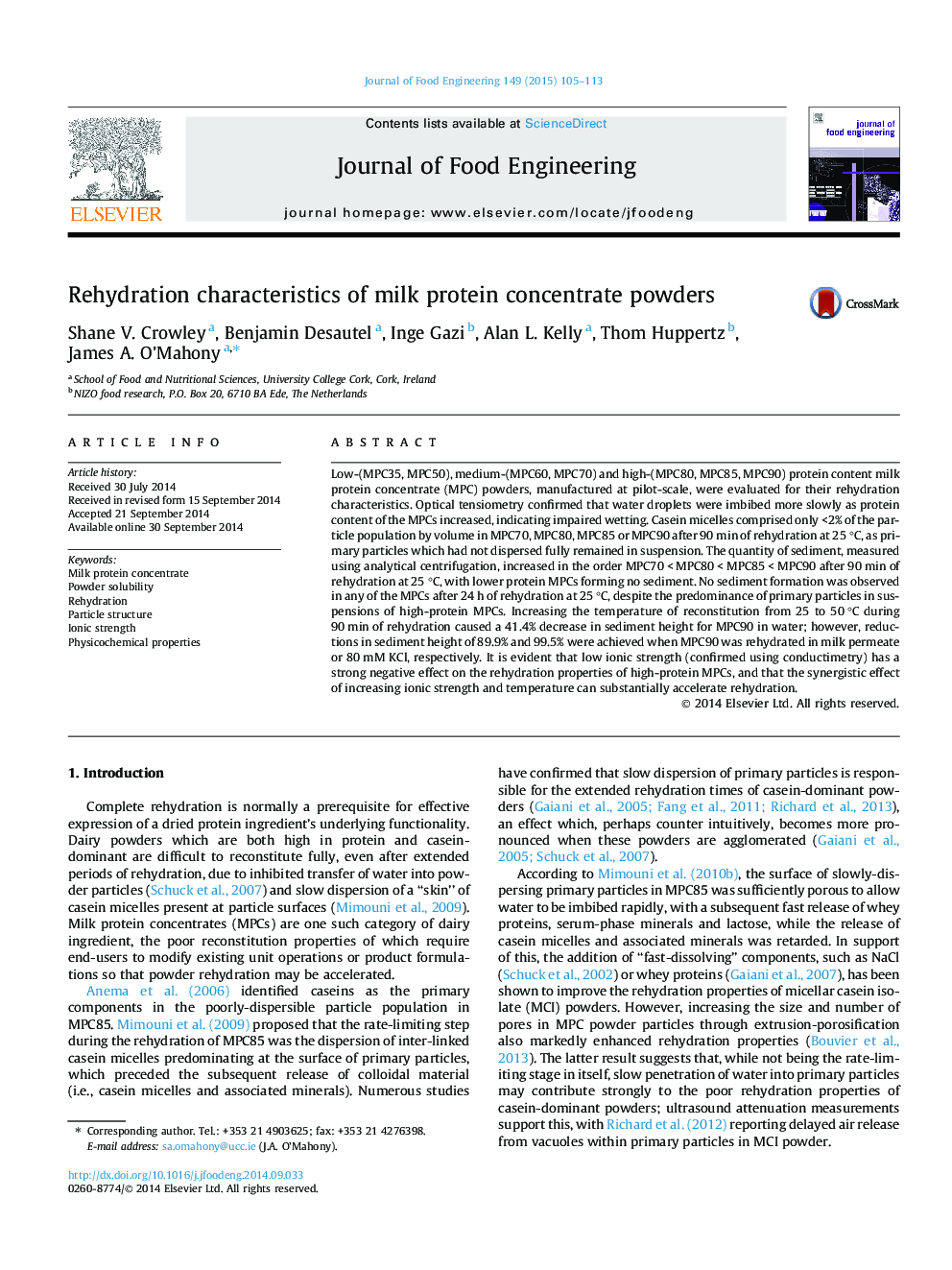| Article ID | Journal | Published Year | Pages | File Type |
|---|---|---|---|---|
| 222960 | Journal of Food Engineering | 2015 | 9 Pages |
•Rehydration properties of milk protein concentrates (MPCs) deteriorated as protein content increased.•‘Skins’ of inter-linked casein micelles at particle surfaces in high-protein MPCs were slow to disperse.•Partial dispersion of poorly-dispersible particles eventually resulted in a stable suspension.•Rehydration performance was improved when ionic strength of the dispersant and temperature of reconstitution were increased.
Low-(MPC35, MPC50), medium-(MPC60, MPC70) and high-(MPC80, MPC85, MPC90) protein content milk protein concentrate (MPC) powders, manufactured at pilot-scale, were evaluated for their rehydration characteristics. Optical tensiometry confirmed that water droplets were imbibed more slowly as protein content of the MPCs increased, indicating impaired wetting. Casein micelles comprised only <2% of the particle population by volume in MPC70, MPC80, MPC85 or MPC90 after 90 min of rehydration at 25 °C, as primary particles which had not dispersed fully remained in suspension. The quantity of sediment, measured using analytical centrifugation, increased in the order MPC70 < MPC80 < MPC85 < MPC90 after 90 min of rehydration at 25 °C, with lower protein MPCs forming no sediment. No sediment formation was observed in any of the MPCs after 24 h of rehydration at 25 °C, despite the predominance of primary particles in suspensions of high-protein MPCs. Increasing the temperature of reconstitution from 25 to 50 °C during 90 min of rehydration caused a 41.4% decrease in sediment height for MPC90 in water; however, reductions in sediment height of 89.9% and 99.5% were achieved when MPC90 was rehydrated in milk permeate or 80 mM KCl, respectively. It is evident that low ionic strength (confirmed using conductimetry) has a strong negative effect on the rehydration properties of high-protein MPCs, and that the synergistic effect of increasing ionic strength and temperature can substantially accelerate rehydration.
